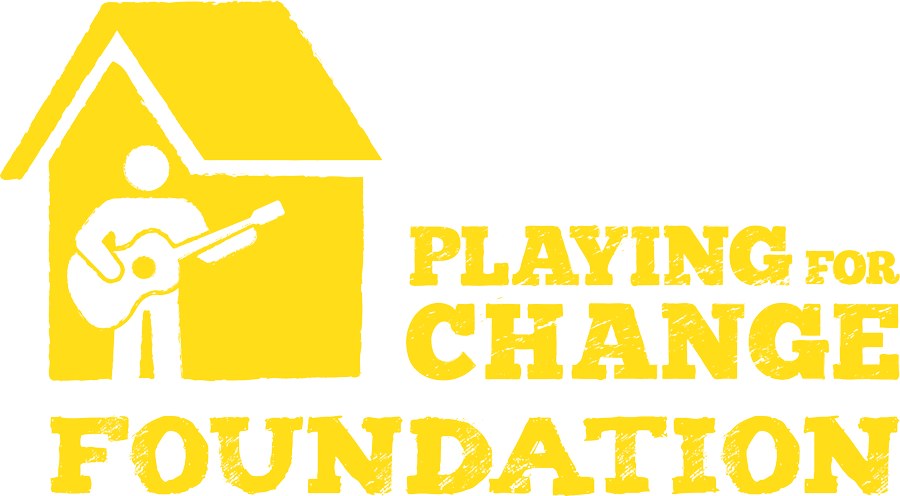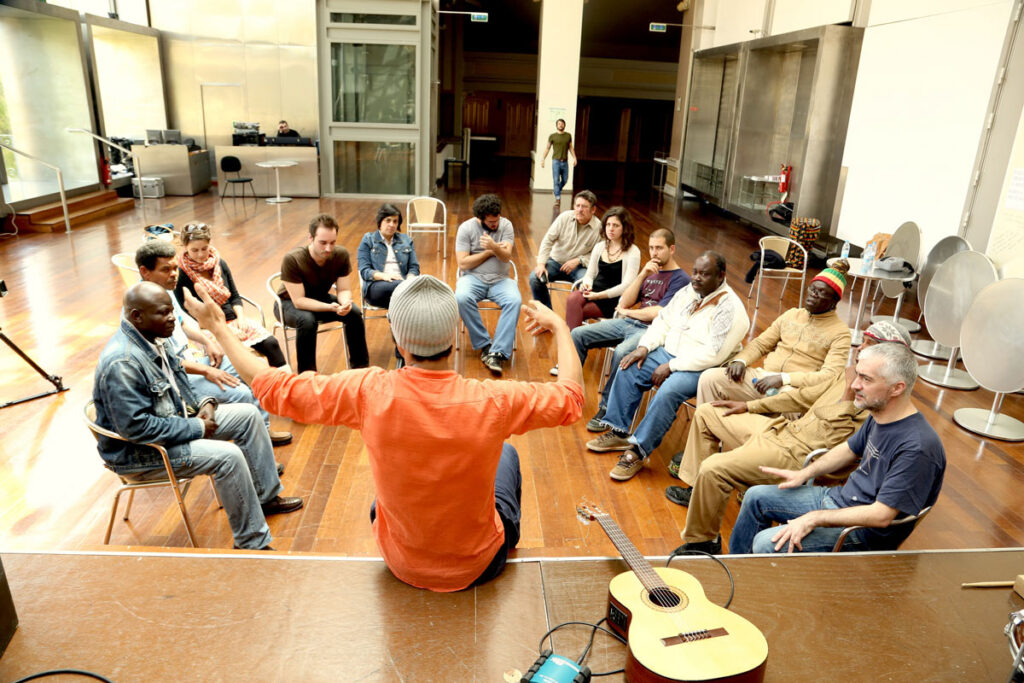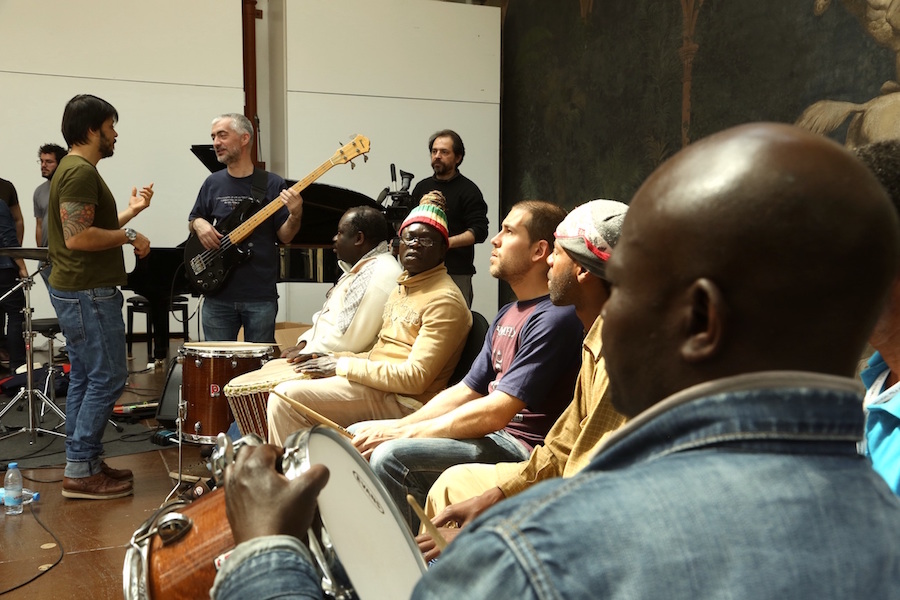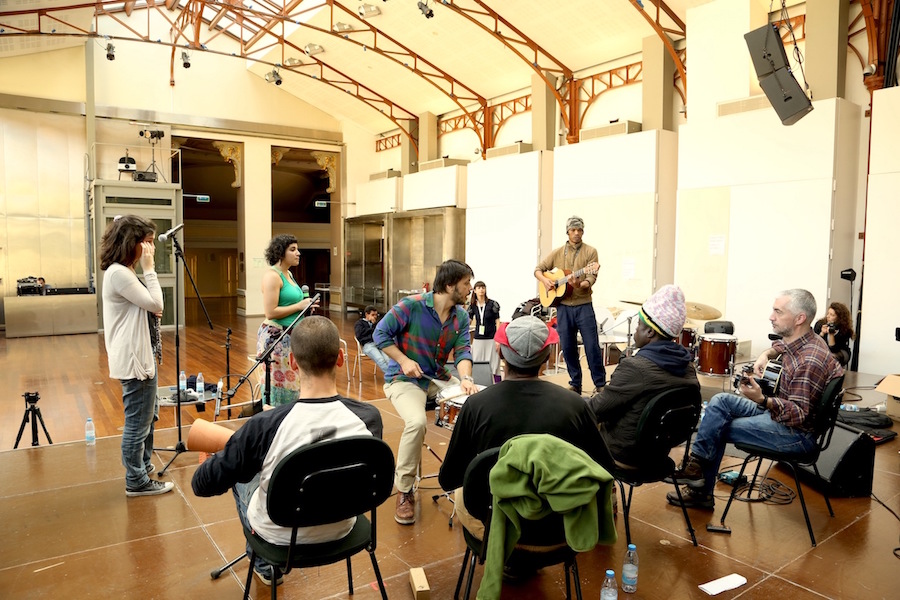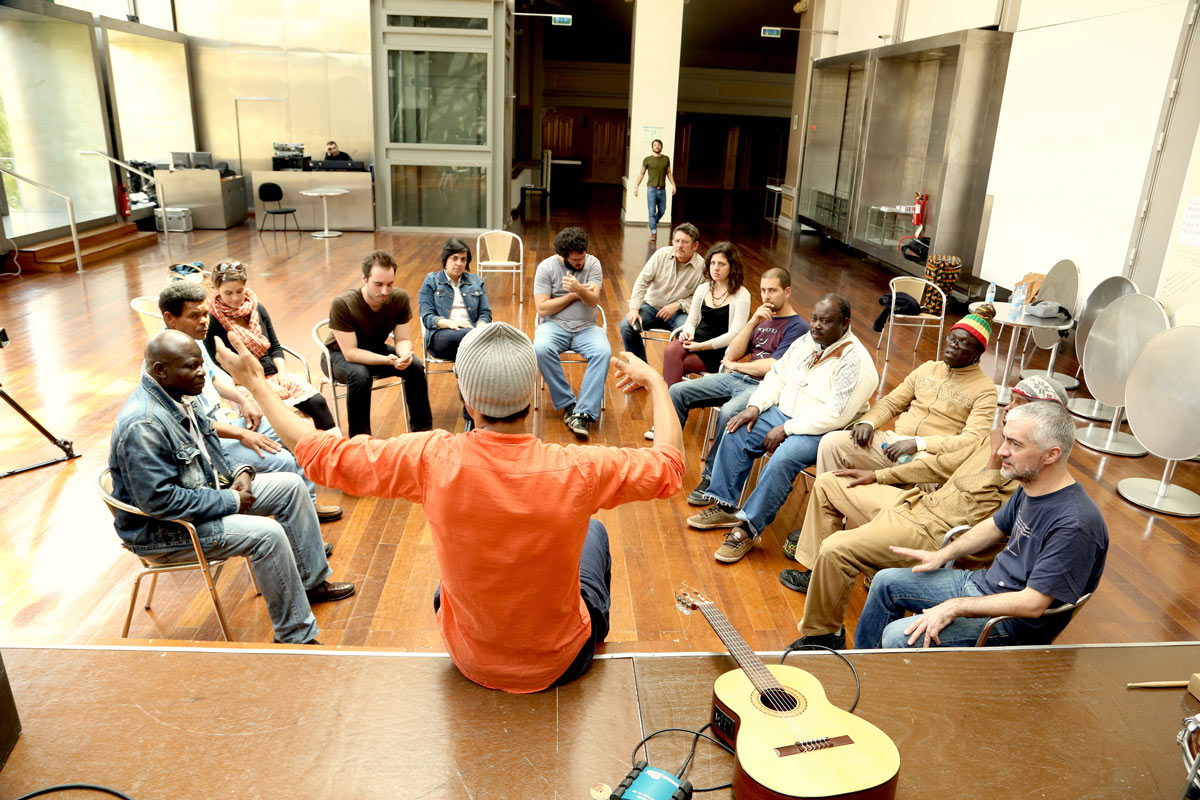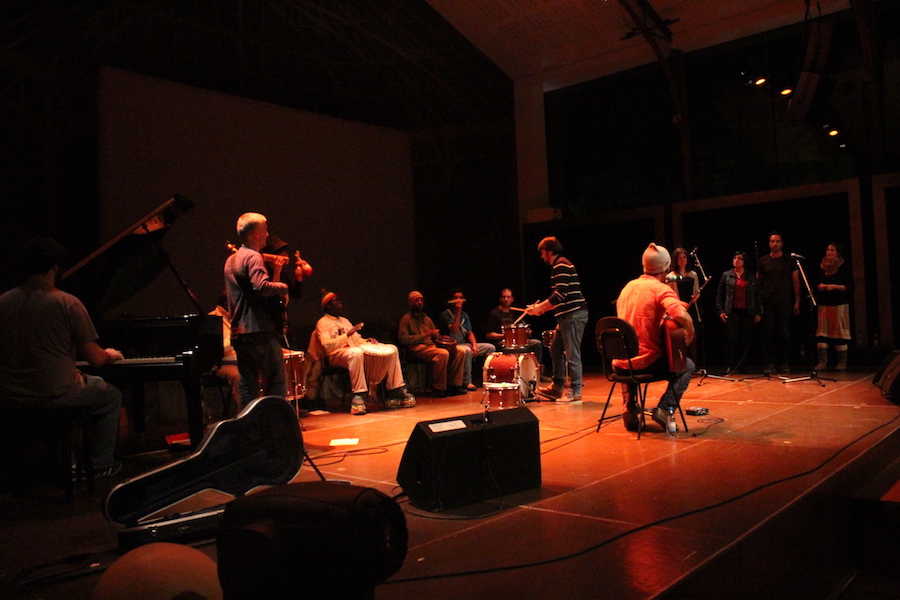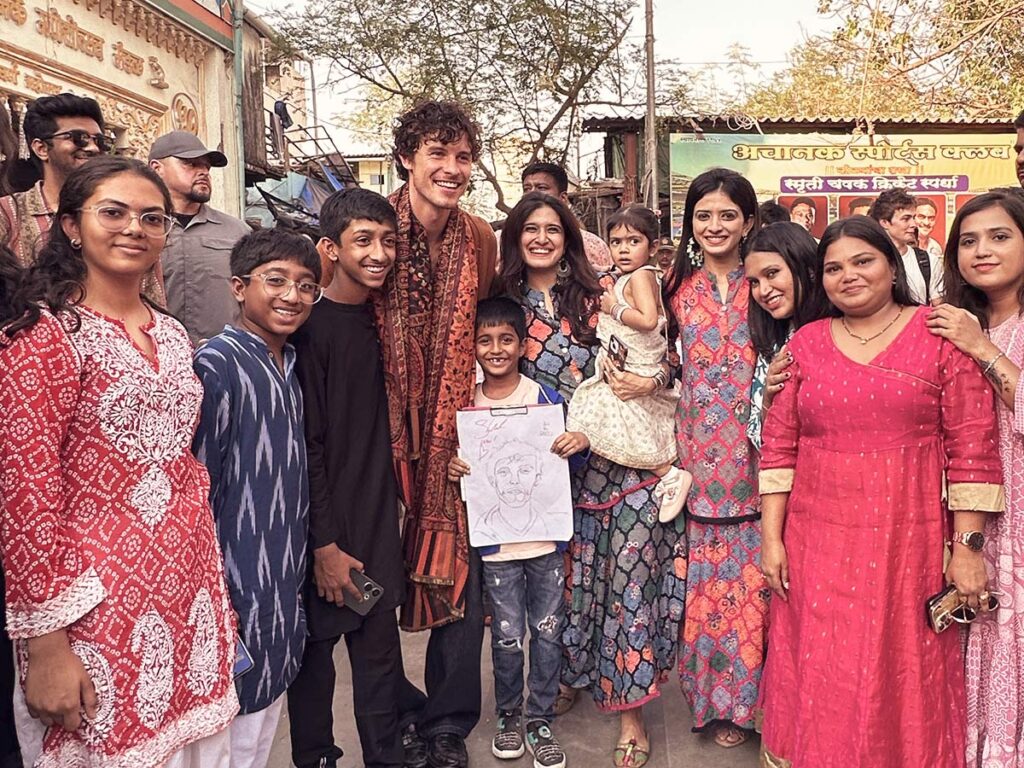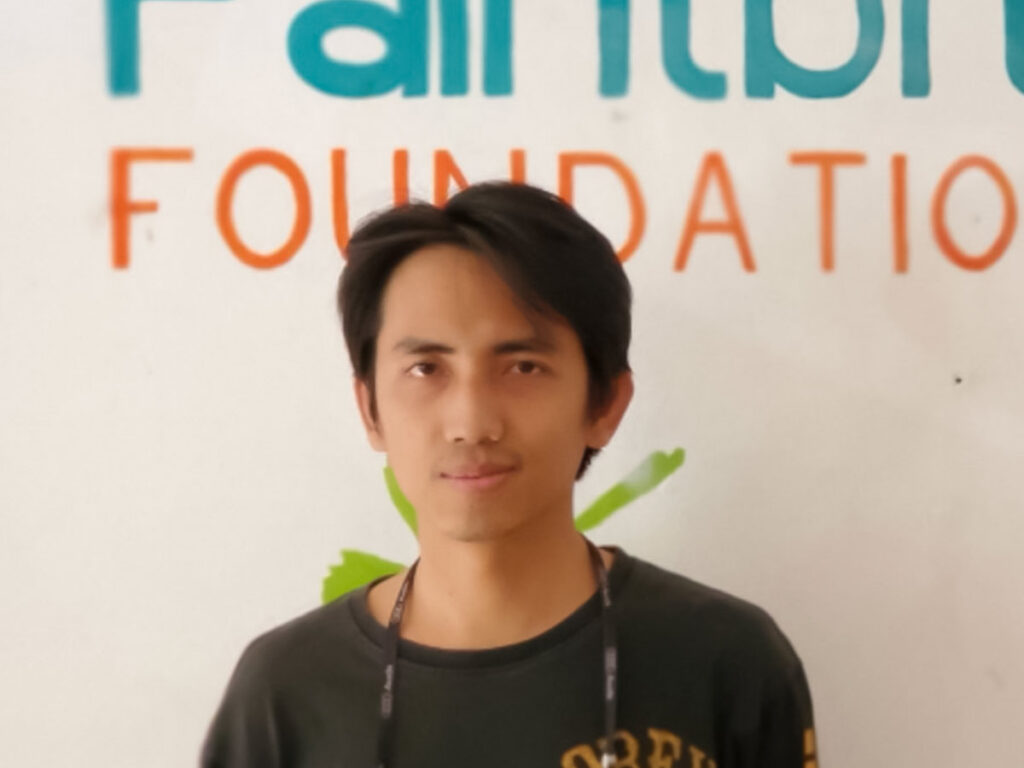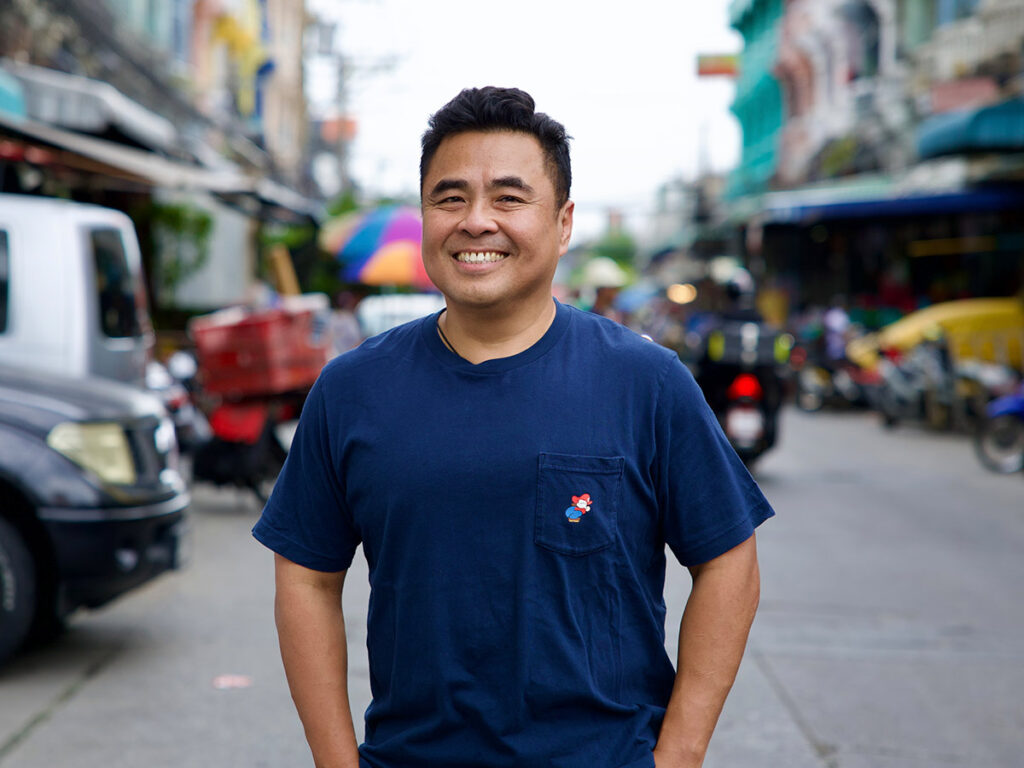A few months ago we were approached by the organization of InArte – International Meetings of Inclusion through the Arts – which has been working for several years on the field of social integration through arts. Every year in Lisbon, Portugal, different seminars, performances and workshops designed to bring together artists, technicians, teachers, psychologists, students, and more are being organized in order to share experiences on the use of arts as a tool for social integration.
The idea was to organize a music workshop with two musicians based in Europe who have been involved with the Playing For Change movement and bring them to Lisbon for them to share their music, experience and knowledge.

Hugo Soares is a singer and songwriter born in Luanda, Angola, who currently lives in Barcelona after staying several years in Argentina and Brazil. Jefferson Otto, is one of the finest Brazilian drummers in Europe, and is also based in Barcelona, Spain. As both of them speak Portuguese and use to play together, there was no doubt they were the right team to conduct the music workshop in Lisbon. InArte put together a diverse group of 15 people to attend the workshop: a few homeless people from Angola and Brazil, some music students and and several music lovers with different backgrounds…
After a short and magistral presentation of Brazilian drumming and Angolan traditional songs, we decided to work on 3 different songs with the group. We had two days to get everybody to play together and perform for the closing of the festival. We decided to pick 3 songs: “Sodade,” famous traditional song from Cape Verde, popularized by Cesaria Evora; “Ainda” (one of Hugo Soares songs); and a traditional samba called “Eu vou botar teu nome na macumba,” by Zeca Pagodihno. Our group was formed of 4 or 5 percussionists, 5 singers, a piano, a bass, a guitar and even a flute. The process of creating music all together and being able to present the work that had been done was a really interesting musical and human experience. Every single person in the group had his own background, technical level, and sense of rhythm and melody, which was definitely the fun and exciting part of all this.
With this kind of music workshop, the Playing For Change Foundation is exploring a new field of action that is not limited to our existing music schools and programs. This is why we hope we’ll be able to organize more music workshops in the future and continue using music as a tool to create positive change.
One love,
François
